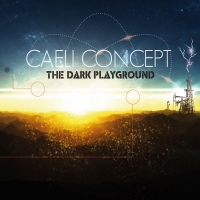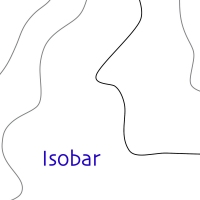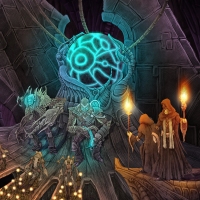In this update we feature:
• Reflection Club – Still Thick As A Brick
• Daïda – La Passion Du Cri (Kyrielle)
• Oxygene8 (Linda Cushma) – Rhino [EP]
• Caeli Concept – The Dark Playground
• Isobar – Isobar
• Ætheria Conscientia – Corrupted Pillars Of Vanity
Bob Mulvey

This was my initial reaction when I first read about – but prior to hearing – this release from multi-national quartet Reflection Club. Taking a STAAB (I see what you did there) at Jethro Tull’s iconic 1972 album surely must be folly and one fraught with lampoonery, however, the expression ‘never judge a book by its cover’, or as it is here a 72-page media-book cover, certainly applies.
To clarify, Still Thick As A Brick isn’t an attempt to make a direct copy of its progenitor, but rather a musical homage, inspired by early ’70’s Tull and specifically TAAB. I suppose in many respects, comparisons to Tull’s TAAB 2 and Homo Erraticus releases might be appropriate.
Requisite to this of course is – do they have a comprehensive understanding of the music and the necessary chops to pull it off?
The project is led by German multi-instrumentalist Lutz Meinert with Nils Conrad (Crystal Palace) on guitar. Vocalist (acoustic guitarist and flautist) Paul Forrest sounds uncannily like Ian Anderson, perhaps to be expected as he also fronts the Jethro Tull Experience. However, barring one track, the flute on STAAB is undertaken by Ulla Harmuth, who I have to say does an impeccable job. STAAB also features a number of guests, however as this is an ADA… I’ll refer you to their website for more information.
So to answer the above question – yes, Reflection Club have an overarching, in depth knowledge of the music and they certainly have the chops!
Like its predecessor, STAAB is also a concept album, with newspaper (72-page media-book including CD & DVD in 2021), and “…a background article illuminating on the narrative background of the album, which can also be gleaned from the printed lyrics included.”. Unfortunately, I cannot do justice to the package as a whole, as this review was undertaken from a download, but what I have seen of the media-book, Rellington Stone magazine, it’s certainly in keeping with the concept.
So what about the music?
Excellent really, and what I found most gratifying about Still Thick As A Brick was that Reflection Club have taken the template and then created an album that embodies the spirit of Tull in the creative spirit of the originators. So much so that they have confidently added their own stamp into the music, without distracting from the template. Complementing the music and again in keeping with the original, the tracks are chock full of wry and satirical lyrics. So convincing is this tribute album I would go as far as to say: if you DON’T like Jethro Tull, then you definitely WON’T like Reflection Club.
Concluding: I’m really glad I didn’t sit this one out.
Nick Hudson

Last year I reviewed the first part of Daïda’s La Passion Du Cri, which was released as an EP comprising the first part of this album. I had originally thought that it was to be a trilogy of EPs, but that may have just been bad translation on my part. The third release in the series is actually full length, comprising the first two EPs, and the remainder of the album, and it’s absolutely as fantastic as either (or both) of the preceding EPs. For any fans of the London nu-jazz scene, it is well worth looking across the Channel to France, where Paris has a thriving scene of its own, and Daïda are without doubt a great band to check out first. Similar to the more well-known London scene, the Parisians incorporate aspects of hip-hop, neo-soul, broken beat, and house music into their sound to great effect. I suggested in my review of the first EP that Daïda would appeal to fans of The Comet is Coming and GoGo Penguin, and that is still the case. I would love to see Daïda become just as much of a household name, as they are of just as great a quality and virtuosity.
La Passion Du Cri (Kyrielle) is powered by the drumming of Vincent Totiller – and I choose the word powered deliberately, because it’s hard to call it anything but powerful. Even at his most subtle, that power is there, like Jojo Mayer or Terry Bozzio (two drummers Totiller reminds me of, even if he does not exactly sound like them). The drumming of Totiller gives a great deal of edge to the music of Daïda, and is absolutely one of my favourite aspects of the band. As I mentioned in my previous review, the other highlight for me is the trumpet of Arno Casenave, who is all over the place and dominates the sound of the group in a fashion similar to the way Shabaka Hutchings does in any group he picks up the sax for. (Speaking of saxophone, Balthazar Naturel makes a guest appearance on that instrument on third track Janine, and it’s very nice indeed!) There’s no getting away from the fact, however, that this is a drummer’s band. And for me, as a great fan of inventive drumming, that makes this album a delight.
But that certainly doesn’t mean the other musicians should be overlooked. I love the nifty and funky (double) bass playing of Samuel F’hima. At times, his bass is pushed higher in the mix, and really gets a chance to shine. The atmospherics provided by Auxane Caritngy’s synths are absolutely integral to the sound of Daïda, but are sometimes so unobtrusive it is perhaps easy to overlook how much they add. (Similar, perhaps to the way a lot of people don’t realise how much Richard Barbieri brought to the sound of Porcupine Tree.) Some of the most beautiful moments on the album come from Caritngy. Last, but certainly not least, is Antonin Fresson on guitar, whose playing is understated but resonant, or dense and multi-layered – and always melodic. Indeed, much of the melody of Daïda is carried by Fresson, as the others riff or create soundscapes around it. The interplay between Fresson, F’hima and Totller is at times incredible, and no doubt comes from years playing together (which is in no way meant to suggest relative newcomers to the band Caritngy and Casenave do not gel). Don’t pass this album by!
Bob Mulvey

Los Angeles-based Chapman Stickist, multi-instrumentalist, vocalist and actress Linda Cushma has returned with, to the best of my knowledge, the first release from Oxygene8 since loop 1 circa 2012. loop 1 was an ambitious and thoroughly intoxicating single track clocking in at a little under an hour. Prior to this my knowledge of Oxygene8 revolved around the Freak of Chance [EP] released in 2007, the follow up to the excellent Poetica (2003).
A little digging revealed that in the interim years Linda has been busy with her acting career, but she has also remained active musically. 2019 saw the release of the stripped-down, live recorded album One Day In March where Linda plays, acoustic guitar, mandolin and sings on these delightfully catchy tracks.
In May this year, Linda Cushma appeared back on the radar with the Rhino [EP] and I have to say I was immediately drawn. She is joined once again by Primus drummer Tim Alexander, along with guest guitarists Federico Miranda and Pablo Tato. As with previous releases, and from bar one of the title tune here, Tony Levin and early ’80s King Crimson offer an ‘Oh yeah!’ moment. These are recurring, but fairly short-lived passages, and although Linda shares Tony Levin’s innate sense of groove, Oxygene8 treads a different furrow. Experimental, industrial, melodic instrumentals that hold the attention.
loop 1 and One Day In March can be heard through the Soundcloud link below. Rhino through the YouTube link. Only two tracks on Rhino sadly, but hopefully a precursor to a longer release soon?
Nick Hudson

French instrumental band Caeli Concept offer a jazzy take on the metal masturbation of bands like Liquid Tension Experiment, with a full-on brass attack. It’s all gloriously over the top, and unbelievably fabulous. I kept expecting to tire of this, or for the novelty to wear off – but it’s just too damn good. The eight-piece band augment the more normal guitars, keys, bass and drums with saxophone, trumpet and trombone, but do so with restraint. Were the brass to be omnipresent and constantly high in the mix, a lot of their impact would be lost. I love the way the brass is sometimes in your face, and other times so subtle and restrained they are more a seasoning than a main ingredient. Still vital to the overall taste, and an absence would be noticeable if they were not there, but just a pinch is required.
If not the brass, then what is most noticeable is how prominent and expressive the bass is. The band sounds like it is led by the chunky bass of Benoit Serret rather than the guitars of either Clément Reviriego or Paul Parsat. The music can get very technical and heavy at times, reminding me of more extreme bands such as Tenebris, and even at times of old-school Opeth. At their heaviest, it is only the keyboard playing of Flavien Morel that keeps some levity and lightness to proceedings. The drumming of Clément Denys is punchy and groovy, managing to perfectly represent the jazzy hints of bands such as Brand X and Colosseum, as well as the metallic leanings of Liquid Tension Experiment and Dream Theater. And then there’s the brass. It is impossible to overstate how much Emilie Klipfel (saxophone), Olivier Viseux (trombone), and Nicolas Renard (trumpet) provide to Caeli Concept.
Between a massive rhythm section, and an equally massive brass section, the resulting prog/funk metal of Caeli Concept is simply fun to listen to. The sort of music that leaves the listener with a goofy grin on their face. Even those with limited patience for instrumental progressive metal (and, to be fair, I am one of those) may be able to gain a lot of enjoyment from The Dark Playground. The playing is as technical and complex as you’d expect, but deceptively and captivatingly so. I have only one problem with this release, and that is that it’s over all too soon. The variety of sounds, textures and moods across The Dark Playground means it is surprising when it comes to its end. Surprisingly also for me because, as aforementioned, I expected to tire of it – but not only do I not, I want to hear more.
Bob Mulvey

A new band with familiar names. Isobar comprise of Bay Area musicians Malcolm Smith (guitar), Jim Anderson (bass) and Marc Spooner (keyboards), all members of the band Metaphor who emerged at the beginning of the millennium. My recollections of the band surround two albums, Entertaining Thanatos (2004) and the follow-up three years later The Sparrow. As both albums were solid and with Metaphor’s last album, The Pearl, receiving a positive review here on TPA, it seemed a no-brainer to check out Isobar’s debut.
I suppose inevitable really, with three members of both bands being the same, that there’s a similarity in the sound, however what becomes obvious fairly quickly is that Isobar are an all instrumental band, which works for me. And I would say it works for them as it allows greater freedom for their solid and inventive take on the progressive mould. Genesis is probably one of the most obvious, but not overtly as Isobar certainly have more than a trick or two in their tail. 😉
Isobar is replete with grandiose themes, great solos, odd meters, angular shifts and plenty of those quirky moments to keep you on your toes. The addition of Mattias Olsson (Änglagård, White Willow, Molesome) on kit is a great move, ensuring an extremely tight rhythm unit, and the brass section a welcome addition to the sound.
So if ever shifting, instrumental prog floats your boat then do check out this album. Isobar is available through a number of on-line retailers as well as Bandcamp.
Nick Hudson

If you can’t tolerate harsh vocals, you can skip to the next review. I don’t like harsh vocals myself, and the vocals on this album are right at the edge of my tolerance – but hot darn, if the music isn’t more than good enough for me to persist with this release. French band Ætheria Conscientia merge the progressive sci-fi black metal stylings of Progenie Terrestre Pura with the prog metal noir of White Ward to create something new, bold, and, dare I say it, beautiful. Honestly, vocals aside, instrumentally there is a great deal of beauty here – and much of it is down to the saxophone, which is not used as weapon (as is so often the case when it is played in a metal setting), but in a beautifully low-key jazzy manner.
Simon Chatteleyn provides saxophone and percussion on all tracks, and was involved with the composing of all tracks, but while a named member of the band for their previous release, he is mentioned only as a guest musician for this album. I hope this doesn’t mean that future albums don’t feature him at all, because his saxophone is such an integral part of the band’s sound for me. It was the reason I listened to the band at all, back in 2018, and the reason I am still following them three years later. Regardless of what the future brings, though, Corrupted Pillars of Vanity is an absolutely superb release – and as much as I liked the debut, this is just better in every way. The sense of this being music set in space is incredible. Just as with Progenie Terrestre Pura, the sci-fi setting is almost tangible, and just as with that band, Ætheria Conscientia use percussion to help the otherworldly vibe. Yes, you have drums, and the obligatory blastbeats, but there is still plenty of room for the percussion, and I love when it takes centre stage. It may have been the sax that brought me to Ætheria Conscientia, but it’s the percussion that really pushed me to fall in love with the band.
I also mentioned White Ward who notionally play black metal, but are often described as metal noir, for the way they integrate the jazzy feel of film noir into their music through use of saxophone. White Ward’s saxophone player, Dima Dudko, provides sax on Elevation in Arrogance (the first part of the almost 25-minute closing track, Absurd Crusade), which is a really nice touch. (White Ward’s Andrii Pechatkin sings on the first song, also.) Absurd Crusade is an amazing finale, to an amazing album, but my favourite track is possibly Liturgy for the Ekzunreh, which slowly builds for the first four minutes as it settles into a shamanic post metal groove, before kicking into the next gear. There’s a nifty wee bass-driven bridge, before everything (including that magical sax) crashes in. This song is possibly the best entry point for those new to the band. Give it a go, and see if you don’t want to listen to more!

